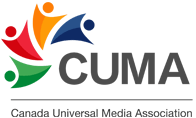北美华人健康协会(CNIW)推进“健康妈妈,健康宝宝:大多伦多地区孕妇免疫接种活动”
该项目为期两年,由加拿大公共卫生署通过免疫合作基金(IPF)资助,旨在提高华裔移民孕妇的疫苗接种率和信任度,确保公平获取疫苗接种服务,促进母婴健康。为此,CNIW专访了多位华裔母亲,分享她们对疫苗的态度、感受和体验。

以下是一位年轻华裔母亲的自述:
(采访:Sally Li、编辑:Lei Nan、 翻译: Daniel Lin)
我来加拿大已经14年了,现在既是一位妈妈,也是准妈妈。
说起来,我第一次怀孕是在疫情期间,当时医生推荐要我接种的疫苗,我基本上都接种了,包括百白破、新冠疫苗、流感疫苗、RSV……主要是产科医生和家庭医生说,这些疫苗对母亲和孩子都有好处。
医生其实不会特别细讲每种疫苗的成分、作用、副作用这些内容。他们诊所里会放一些小册子,我有时候会拿回家看看。更多时候,我自己会上网查。一般是从加拿大卫生部官网开始,也会直接搜索疫苗的名字,看看它到底是干什么的,有什么反应,对孕妇和小孩有没有影响。
坦白说,像百日咳、破伤风这种老牌疫苗,我是很放心的。但我对一些新疫苗是有点担心的。比如流感疫苗,它每年都在变;还有当时的新冠疫苗,推出得又快,又是第一次用在孕妇身上,我心里就会打鼓。我总会想,这些疫苗有没有经过足够的测试?它们的影响会不会是十几年后才看出来的?这些问题没人能回答我,我也只能在“现在的利”和“将来的可能”之间反复衡量。
在加拿大,打疫苗这事儿本身是挺方便的。流感疫苗你去家庭医生那儿就能打,或者直接去 Shoppers 这种药房 walk-in 都可以。我自己打完之后反应也都还好。没有特别严重的副作用,就是手臂会痛一阵子。医生说可以照常生活,可以洗澡、正常活动什么的,但我自己会比较小心,比如第一天我就不洗澡。算是图个安心吧。有时候打完会有点类似感冒的小症状,我也不确定是不是免疫系统的反应。
对我来说,最犹豫的其实是流感疫苗。我以前每年都会打,但每次打完反而觉得自己更容易生病,而且症状更重。医生总说,打了之后即使感染也会轻一些,但我的体验刚好相反。所以今年我决定干脆不打了,看看会不会有差别。到现在为止,我生病过两次,恢复得都还算快。最严重的那次也就是三四天就好了,没以前那种拖着咳嗽两个星期。虽然我不知道是不是巧合,也不敢说一定是疫苗的原因,但这确实让我重新思考这件事。
这些年来,我也越来越注意到,社会上对疫苗的声音其实挺分裂的。一派是特别支持疫苗的,另一派是比较反对的。这两边讨论很激烈,各有各的数据、依据和观点。我也认真听了,但是最后并没有一个非常明确的结论。现实中,只要你去医院、去看医生,基本上他们都会推荐你打疫苗。我觉得这可能跟他们受的医学教育有关,疫苗在他们的系统里是标准做法。当然也不是所有医生都一样。我认识一个美国的医生,他连自己的孩子都不让接种疫苗。
我也有特意去了解一下反对方怎么说,他们有时候也会请很多专家,组织panel,一边是西方医学体系里特别支持疫苗的专家,另一边是偏整体健康(holistic)路线的专家,他们会说疫苗可能会让某些疾病的发生率变高。这让我也意识到,即使在医学圈里,观点也不是完全一致的。
如果说我有什么建议的话,我觉得关于疫苗的科普,不是只告诉大家“这个好,应该打”,而是要说清楚“为什么要打”。特别是新的疫苗,比如新冠、流感这类的,大家的信任感本来就没那么强。如果能让信息更透明、完整,我相信会更有帮助。
老疫苗大家已经有共识了,但新的疫苗信息太少了,如果只是说“医生推荐”,很多人其实是不放心的。如果能多解释一下,特别是新疫苗。如过能多讲讲它是怎么研发的,背后的原理、数据、过程是什么,为什么这次打、为什么相信它,越讲得明白,信任才越有可能建立。我想,很多时候大家不是完全反对疫苗,至少就我自己来说是这样的,只是希望能在理解的基础上做出决定,而不是在模糊和恐惧之间摇摆。
The Choice of Vaccines: A Matter for Reflection
I have been in Canada for 14 years and am now both a mother and an expectant mother.
Speaking of which, my first pregnancy was during the epidemic. I have received all the vaccines recommended by my doctor, including the DPT, COVID-19 vaccine, influenza vaccine, and RSV vaccine, primarily because the obstetrician and family doctor stated that these vaccines are beneficial for both mother and child.
Doctors typically don’t provide detailed information about the ingredients, effects, and side effects of each vaccine. They have brochures in their clinics, and I sometimes take them home to read. More often, I look it up online. I usually start with the Canadian Ministry of Health’s website and also search for the name of the vaccine directly to see what it does, what reactions it has, and whether it has any effects on pregnant women and children.
Honestly speaking, I feel very comfortable with old vaccines like pertussis and tetanus. But I am a little worried about some new vaccines. For example, the flu vaccine is updated annually. And the COVID-19 vaccine was launched so quickly and was used on pregnant women for the first time, which made me nervous. I always wondered if these vaccines had been tested enough. Would their impact only be seen after more than a decade? No one could answer these questions for me, and I could only weigh the “benefits now” and “possibilities in the future” repeatedly.
In Canada, vaccinations are very convenient. You can get the flu vaccine at your family doctor’s office or a walk-in pharmacy, such as a Shoppers location. I experienced no serious side effects, except for some temporary discomfort in my arm. The doctor said I could go about my daily life, take a shower, and engage in everyday activities, but I was more cautious. For example, I didn’t take a shower on the first day. I thought it was for peace of mind. Sometimes I experience minor cold-like symptoms after vaccination, and I’m unsure if it’s a reaction from the immune system.
For me, the most considerable hesitation is the flu vaccine. I used to get it every year, but every time after getting it, I felt that I was more likely to get sick, and the symptoms were more severe. The doctor always said that even if I got infected after getting the vaccine, it would be less severe, but my experience was just the opposite. This year, I decided not to get the vaccine to see if there would be any difference. So far, I have been sick twice, and I recovered pretty quickly. The most serious one was only three or four days, not like before when I had a cough for two weeks. Although I’m unsure if it’s a coincidence, and I can’t say it’s definitely due to the vaccine, it does make me reconsider this matter.
Over the years, I have observed that the public is divided on the issue of vaccines. One group is very supportive of vaccines, and the other group is more opposed. The two sides engage in intense discussions, each with its data, evidence, and opinions. I also listened carefully, but in theend, there was no obvious conclusion to be drawn. In reality, as long as you go to the hospital and see a doctor, they will recommend that you get vaccinated. I think this may be related to their medical education. Vaccines are standard practice in their system. Of course, not all doctors are the same. I know an American doctor who doesn’t even let his children get vaccinated.
I also made a deliberate effort to understand what the opponents said. Sometimes they would invite many experts to organize panels. On one side were experts in the Western medical system, who particularly supported vaccines, and on the other side were experts who preferred holistic health approaches. They would say that vaccines might increase the incidence of certain diseases. This made me realize that even in the medical community, opinions are not entirely consistent.
If I have any suggestions, I think the popularization of science about vaccines should not just tell people “this is good, you should get it”, but also explain “why you should get it”. Especially for new vaccines, such as those for COVID-19 and influenza, people don’t have a great deal of trust in them. If the information can be made more transparent and complete, I believe it will be more helpful.
There is already a consensus on the old vaccines, but there is too little information about the new vaccines. If it is just “recommended by doctors”, many people are worried. Could you elaborate further, particularly on the latest vaccines? If you can discuss the development process in more detail, including the principles, data, and methods behind it, as well as the reasons for its creation and your confidence in it, the more precise the explanation becomes, the more likely trust will be established. I believe that many people are not entirely opposed to vaccines. At least for me, I hope to make decisions based on understanding, rather than swinging between ambiguity and fear.




